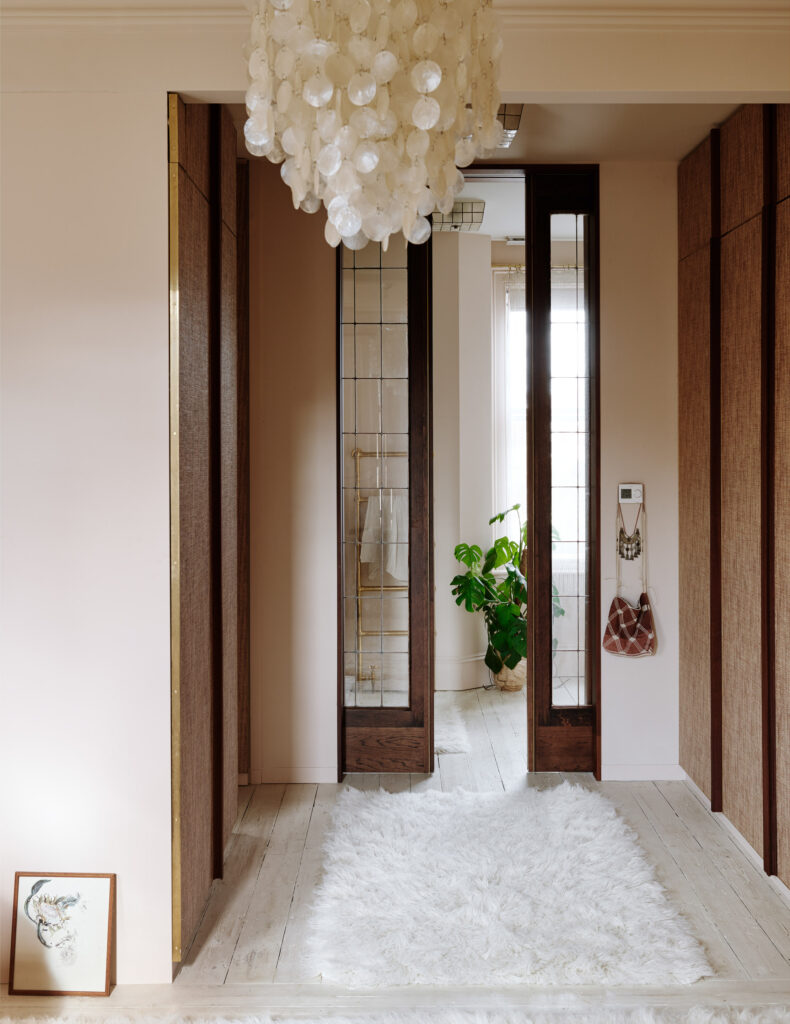Table of Contents
- Reinventing the Bits & Pieces of Periods Past for New Use, Retrouvius Salvages Contemporary Design From the Clutches of Want & Waste
- Founder of The White Company, Chrissie Rucker Applies a Neutral Palette & Discriminating Eye to Cultivating the British Brand’s Au Courant Style
- Co-founding Designers Glenn Lawson & Grant Fenning of Los Angeles-based Brand Lawson-Fenning Are in a Golden State of Mind

Reinventing the Bits & Pieces of Periods Past for New Use, Retrouvius Salvages Contemporary Design From the Clutches of Want & Waste
In a state of recovery for nearly three decades, Retrouvius is a force in the business of reclaiming building materials. When the salvage operation was launched in 1993, repurposing was hardly the rage; it was barely a thing. Many thought it a fringe consideration.
This focus and the ethos it engendered, however, put Retrouvius and its co-founders, Adam Hills and Maria Speake, at the forefront of a movement that is less trending than it is in total alignment with our environmentally tenuous times.
From the company’s early work in conservation to supplying reclaimed items for the film Trainspotting to branching out into interior design, London’s leading salvage dealer is equally sought-after as an architectural practice, especially by those with a penchant for spaces that might appreciate a little patina—a battered banister, a few light fittings, some scuffed-up marble flooring, a worn bit of mahogany, whatever a demo might send packing to a landfill.
Retrouvius’ mandate is to find perfection in the imperfection and exploit it to ingenious effect. Why destroy what can be saved?
“Demolishing without much thought was never smart, but today, given our environmental woes, feels wholly irresponsible.”
Its interior interventions—residential and commercial both—speak to this philosophy. Many feature high-quality period pieces showcasing the defects of time; others an architectural solution, be it removing a wall to open up a space or a more dramatic structural move. Each effort is, like the tones of the 1970’s-feeling London home shown here, vividly achieved.
Retrouvius
Photograph: © Michael Sinclair
Founder of The White Company, Chrissie Rucker Applies a Neutral Palette & Discriminating Eye to Cultivating the British Brand’s Au Courant Style
“I have always loved the perfect simplicity of white,” says Chrissie Rucker OBE, founder of British lifestyle brand The White Company. “Just like a little black dress, it’s classic, yet modern and never dates.”
Neither, it seems, does the brand that just marked 25 years. The idea for the business came to Chrissie Rucker—then a Harpers & Queen journalist—when her boyfriend and now-husband Nick asked her to help set up his first home.
“When he moved in, he owned a bed, a few chairs, some green towels and burgundy bed linen!” says Chrissie Rucker, who was confident she’d secure every essential. But confronted with all that choice, bright color and manic pattern—“it was a disaster!” she says.
Yesterday’s disaster is today’s beloved brand, however, one defined by chalky whites textured neutrals and natural finishes across a range of beautifully designed, well-made products.
High quality and soft, tactile texture is The White Company’s way.
“Crisp, cool cotton and beautiful linens combined with the softest cashmere, silks and textured knits all work beautifully together,” says Chrissie Rucker.
“We love to layer in pieces made from natural wood or stone, as well as beautiful glass vessels, ready to fill with fresh flowers, greenery, or candles. Soft rugs to use underfoot throws to layer and of course wonderful, sensory home scents that will instantly shift the warmth and mood of a space.”
One finds expressions of this aesthetic in the new book For the Love of White (Harper Design), which features Chrissie Rucker’s white-Haute homes and others she admires. But even the most graciously appointed space simply pales in comparison to a woman of vision.
The White Company
Photographs: courtesy of the White Company
Co-founding Designers Glenn Lawson & Grant Fenning of Los Angeles-based Brand Lawson-Fenning Are in a Golden State of Mind
“We have built our ethos and company around the principals of California design,” say Glenn Lawson and Grant Fenning, who met in art school before co-founding their eponymous brand that has created a cult following of mid-century living enthusiasts in Los Angeles and beyond. The design duo favors the simplicity and honesty of the California aesthetic, which Lawson-Fenning expresses via “quality construction, natural palettes and a connection to nature.”
With a much-loved flagship on Melrose and an army of multi-generational craftspeople in its employ, Lawson-Fenning is Los Angeles to its core. “We have a deep and rooted connection to Southern California,” they say, “and it informs everything we do.”
This includes designing handmade vintage-modern furnishings that are California in feeling, Scandi in spirit, and contemporary in tone. From daybeds to dining chairs, storage to sofas, lighting to mirrors, each piece in the LF Collection—along with the complementary accessories and home goods that share its exquisitely curated space—is a product of this sensibility.
Key to the Lawson-Fenning landscape is its collaboration with other like-minded artists and makers. The results of these partnerships—everything from one-of-a-kind side tables to ethically-made textiles—are exclusive to Lawson-Fenning. More is in the making for the brand as its namesakes look ahead to even more alliance-produced designs.
“We are particularly excited about ceramic collaborations in furniture and lighting,” say Lawson and Fenning, who while inspired by the past are focused on the future.
“We are working on our next collection—simple, monumental shapes in solid wood.”
Lawson-Fenning
Photographs: Courtesy of Lawson-Fenning and Yoshi Makino (lifestyle)